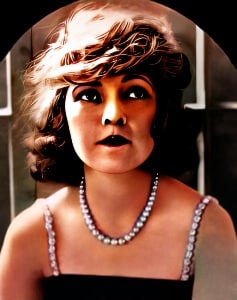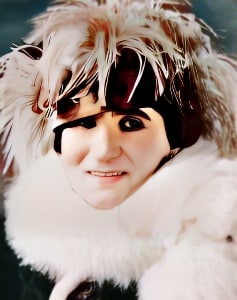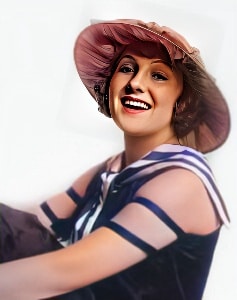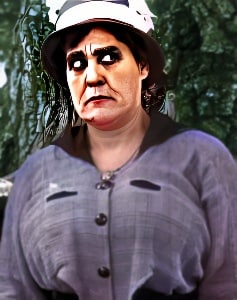 Fannie Ward, a prominent figure of the silent film era, left an indelible mark on early cinema with her talent, beauty, and adaptability.
Fannie Ward, a prominent figure of the silent film era, left an indelible mark on early cinema with her talent, beauty, and adaptability.
Born on February 22, 1872, in St. Louis, Missouri, Ward’s journey in the entertainment industry began on the theatrical stage. She honed her acting skills in numerous theater productions, earning recognition for her versatility and charisma. Her transition to the emerging medium of film in the early 1910s marked a significant turning point in her career.
Ward was one of the first established stage actresses to successfully venture into the world of cinema, showcasing her ability to excel in a new artistic realm. Her transition to film was seamless, and she quickly became a celebrated actress of the silent film era.
Throughout her film career, Ward portrayed a wide range of characters, captivating audiences with her performances. In “ The Cheat” (1915), she played the lead character, Edith Hardy, in a groundbreaking film that explored moral dilemmas and stirred controversy. Her role in the film was critically acclaimed and solidified her status as a leading actress of the time.
Fannie Ward continued to charm audiences with her on-screen presence in various films, including “Her Strange Marriage” (1917), “His Birthright” (1918), and “Alias Jimmy Valentine” (1920). Her ability to convey complex emotions and engage viewers through her acting demonstrated her remarkable talent and appeal.
Ward’s personal life was marked by her marriages. She was married to Joseph Lewis and later to a prominent theater figure, William A. Brady. The couple had a daughter named Mary. Ward’s personal experiences likely informed her performances, adding depth to her on-screen characters.
Fannie Ward’s contributions to the film industry are undeniable. As one of the early stars of silent cinema, she paved the way for future generations of actresses and made an indelible mark on the industry. Her work not only entertained audiences but also contributed to the growth and development of the film industry during its formative years.
Ward’s performances, especially in “ The Cheat,” remain iconic, and her influence is felt in the history of cinema. Her ability to seamlessly transition from the stage to the screen showcased her adaptability and enduring talent. She holds a significant place in the annals of early American cinema.
In conclusion, Fannie Ward’s legacy in the world of entertainment is one of versatility, talent, and pioneering spirit. Her contributions to both the stage and the screen left an enduring mark, and her performances continue to be celebrated as part of the rich history of silent cinema. Fannie Ward’s name remains synonymous with the golden age of early film, a testament to her enduring impact on the art of storytelling through motion pictures.




